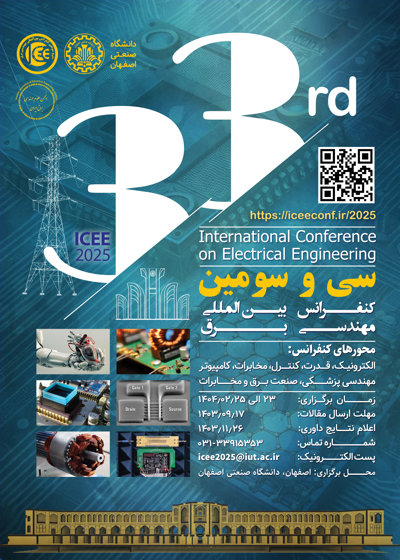0% Complete

نویسندگان :
کلمات کلیدی :
چکیده :
لیست مقالات بایگانی شده
Kevin Babakhanloo - Khalil Alipour - Bahram Tarvirdizadeh - Majid Sorouri - Mohammad Ghamari
Maryam Hajilou - Siamak Khalili - Hosein Farzanehfard
سمیه بهرامی - فاطمه صفایی
Shima Amirinalloo - Zahra Atlasbaf
فاطمه سادات حسینی راد - امیررضا عطاری - سیدمحمدسعید ماجدی
Daniyal Khosh Maram - Hamed Abnavi - Hanieh Talati Aghdam
Sania Eskandari - Siavash Zargari - Saeed Meshgini - Ali Farzamnia
Sara Alaei - Mahmood Seifouri - Saeed Olyaee - Gholamreza Babaabbasi
Mohammad Amin Abdollahi - Gholamreza Moradi
علیرضا باغبانی - سیده فاطمه مولایی زاده





